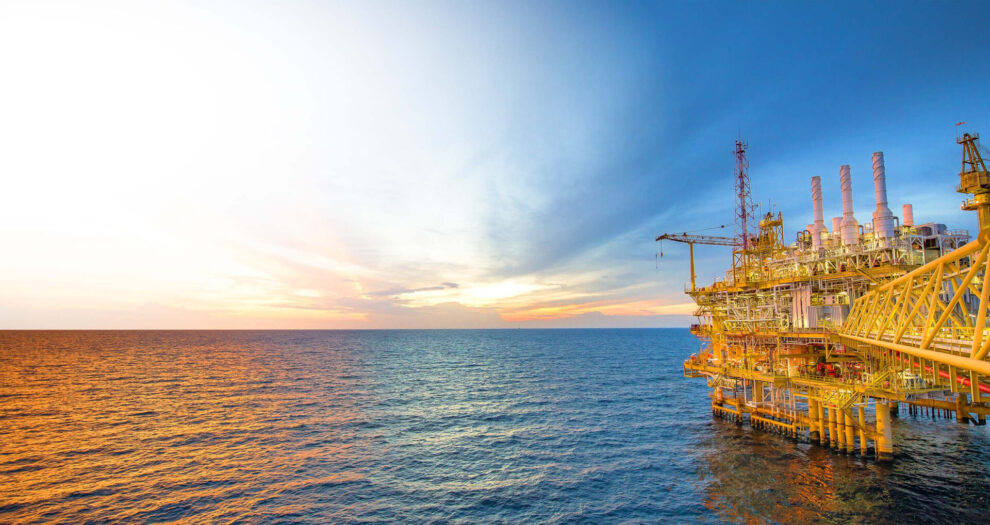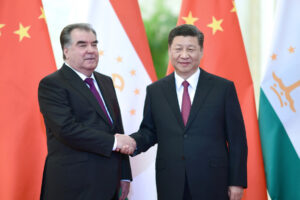Eco Atlantic is seeing interest from oil majors for its exploration blocks offshore Namibia, with activity likely to increase once TotalEnergies reports the findings of flow tests on its Venus discovery in September, the CEO of the explorer told S&P Global Commodity Insights.
“The entire Guyana-Suriname basin, a 13 billion-barrel discovery in the two countries … almost fits into our [South African] block 3B/4B in terms of size,” Gil Holzman said in a wide-ranging interview. “We have one of the best blocks in the basin.”
In recent years, oil majors have been retreating from mature West African basins, as they previously did in the North Sea, leaving smaller players to take over their assets.
However, Atlantic Margins-focused Eco Atlantic is bucking that trend. With just six employees, the London- and Toronto-listed company is pursuing pure-play exploration projects – taking large stakes in frontier basins, carrying out 3D seismic work, and farming them out. And having entered Guyana in 2014 and Namibia in 2009 – before bigger companies – Eco Atlantic is cheering huge recent discoveries in the world’s two hottest exploration locations.
‘Nimble, small and early’
“We are very good in identifying early in the game the best basins to be in,” Holzman said, outlining the strategy. “We come in nimble, small and early. We take a large working interest to start with. We de-risk it ourselves … eventually we get it to a stage where it’s ‘farm-outable’.” The company also applies for drilling permits and identifies drilling targets.
Eco Atlantic is very selective with its investments, he said, only working in stable jurisdictions with strong rule of law, and preferably English-speaking. Going in early allows it to “sign good terms and flexible work obligations,” he said.
In Guyana they have partnered with Total and Tullow, and have 1 billion barrels of reserves across two discoveries in 2019, Holzman said. In South Africa, Eco Atlantic farmed out its blocks to Africa Oil Corp. and Africa Energy Corp.. “We are considered to be a very comfortable partner in the industry. We are not greedy, we take the benefit of partnering with bigger companies, but we stay in the game and we work together,” he added. Africa Oil is among Eco Atlantic’s investors, holding a 19% stake.
Going forward, Holzman said the company will focus on creating shareholder value through retaining 20%-30% in major discoveries. “We have eight blocks – all we need is a discovery in one of them – it can be in Guyana, it can be in South Africa, it can be in Namibia …It’s all elephant hunting. It’s all 1 billion barrels.”
“Let’s say we’re going to have four or five attempts in the next two years. To grow and look for additional acreage, okay, if something comes along and it’s nice and it fits our strategy, great. But what we have is more than enough to make a $1 billion company. We just need to strike the oil.”
Namibia interest
Holzman said Eco Atlantic has “inbound interest from a few companies” for its four Walvis Basin blocks in shallow water off Namibia, PELs 97, 98, 99, 100, some of which are already covered with 3D seismic. “We have 85% working interest in each of the four blocks, which makes us the second acreage holder in Namibia.” When asked, he confirmed that oil majors were interested in the assets.
Namibia looks set to join the ranks of African oil producers, with an estimated 11 billion barrels of reserves. In September, TotalEnergies is expected to announce the results of a flow test on its enormous Venus discovery, with many in the industry feeling bullish.
“I think it will open the door for many more deals and drilling activity in South Africa, Namibia Orange Basin,” said Holzman. Eco Atlantic’s own southern Africa reserves could reach 4 billion barrels in South Africa and 7 billion barrels in Namibia, he said, adding that “the potential is for three times Guyana if we show that it works all across the basin.”
The Namibian government, he added, was “very supportive” as it prepares for an onslaught of investment and drilling activity.
While investments in other African countries – few of which meet the company’s strict criteria – are unlikely, Holzman said Angola’s business environment has improved significantly. “This is something we can look at because it’s really changing. It’s a much better environment these days,” he said.
Energy security
Like many Africa-focused oil executives, Holzman railed against demands by climate activists and Western governments that African countries avoid carbon-intensive projects, when the continent produces just 2% of global emissions and 650 million Africans lack electricity access.
“You cannot speak with Africans in Congo or in Namibia about a just energy transition as if you were sitting in the middle of London or New York,” he said. “They should benefit from the abundance of resources that they have.”
Holzman added: “The Western world, which developed itself great in the past 100 years using fossil fuel, cannot lecture to Africans now because we burned the entire world and because of global warming, that now you Africans need to go and start cooking using only solar panels.”
Source : SPGLOBAL
















